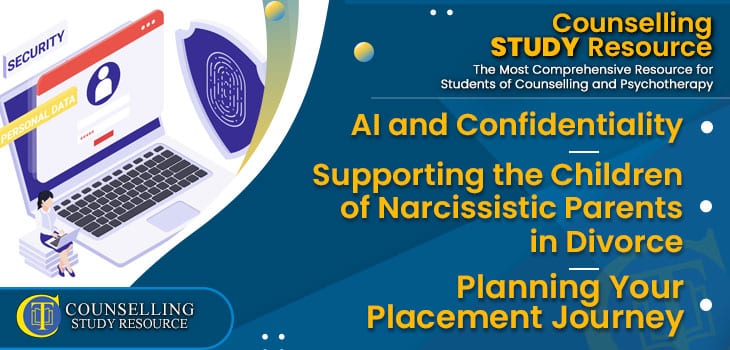See Counselling Skills Used in Real Sessions by Qualified Therapist
Real Sessions – Real Presentations – Real Skills
Gain the competence and confidence to use counselling techniques effectively!

The Counselling Tutor Podcast is back for Episode 286 as we enter 2024, and your hosts Rory Lees-Oakes and Ken Kelly are here with more topics and discussions:
Finding a Counselling Placement
The use of Artificial Intelligence is constantly growing, and it’s important that we know how to make use of it safely and ethically. In this section, Rory and Ken discuss some of the ways AI can put confidentiality at risk:

Real Sessions – Real Presentations – Real Skills
Gain the competence and confidence to use counselling techniques effectively!
This week, Rory speaks with Amy Launder about supporting children of narcissistic parents during the divorce process, touching on the specific challenges this can bring.
The key points of this discussion include:

On-demand access to a rich lecture library covering theory, skills, and professional development for counselling students—Mapped to the UK awarding body criteria
“The Student Library has been BRILLIANT, I can’t recommend it enough!
It has been a lifeline in helping me prepare for practice and my first clients. If you’re considering it, go-for-it, it’s absolutely worth it!”
Kelly – Graduated and now in practice.
An essential part of your counselling journey is completing your 100 placement hours. In this section, Rory and Ken discuss some of the things to consider when arranging your placement:
Finding a Counselling Placement

Get on-demand Certified CPD that is implementable in your practice
